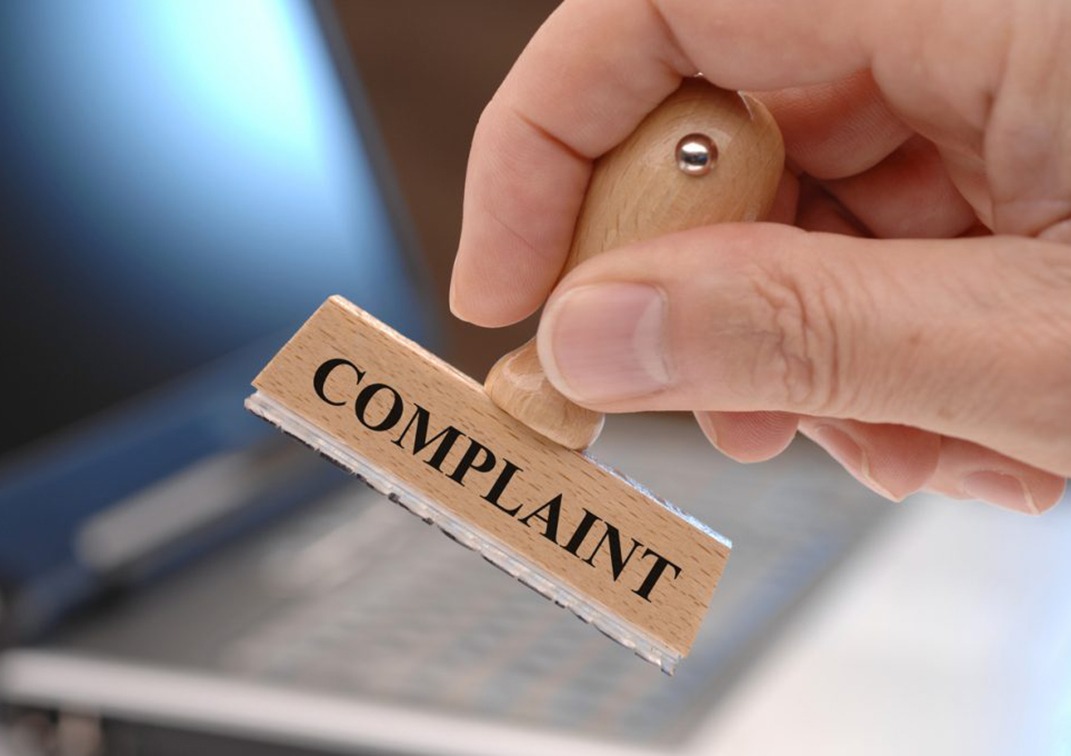It happens to the best of us. As licensed or certified professionals, we strive to abide by the rules of our profession and fulfill our obligations, but you know what happens to the best-laid plans. As careful as we may be, mistakes can happen, and situations can go awry. The buyer in a real estate sale might feel the transaction did not go as promised and so they file a complaint against the selling agent. Or life momentarily gets the better of you and you find yourself the defendant in court.

If you are on the receiving end of a complaint or dealing with legal troubles, it’s natural to feel defensive or embarrassed. You might want to handle it quietly and avoid anyone finding out. It is important, however, that you immediately determine what you are required to report to your licensing authority.
Many professional licensing authorities have specific requirements and deadlines to report complaints, judgments, or other matters that arise. Failure to make the required report is often grounds for disciplinary action. In the following, we provide a thumbnail sketch of proactive self-reporting requirements for several professions: Attorneys, Mediators, Real Estate Brokers, Appraisers, and Certified Public Accountants. In our next blog, we’ll look at some healthcare professions.
This information is related only to proactive self-reporting and does not cover any other reporting that may be required when it is time to renew a professional license or certification. It is up to each individual to know the rules in your profession. Most professions have self-reporting obligations, but the specific duties vary significantly.
Attorneys
The North Carolina Rules of Professional Conduct require an attorney to self-report promptly the misapplication or misappropriation of trust funds or other entrusted property. See Rule 1.15-2(p). Otherwise, there is no proactive self-reporting requirement related to other disciplinary issues under the Rules of Professional Conduct. However, Rule 8.3(a) sets out a reporting requirement pertaining to the professional misconduct of another lawyer, although the rule is limited if the client objects to the lawyer making a report of confidential information.
NCDRC Certified Mediators
Under Rule 8 of the mediation rules for both civil superior court and family court, certified mediators must report to the NC Dispute Resolution Commission within 30 days of receiving notice of: pending criminal charges; criminal convictions; restraining orders issued against them; failures to appear; pending or closed grievances of complaints filed with or disciplinary action taken against them by a professional licensing, certifying, or regulatory body; judicial sanctions; and civil judgments, tax liens, or bankruptcy filings.
For example, if you are an attorney and also a certified superior court mediator, and you receive notice that a former client has filed a grievance with the State Bar against you, your 30-day clock has now started to run. You must report to the DRC within 30 days of when you receive notice that a grievance was filed.
Real Estate Brokers
Licensed real estate brokers must report to the NC Real Estate Commission within 60 days of a final judgment, order, or disposition of a case. The applicable REC rule, 21 NCAC 58A .0113, provides for mandatory reporting of: any felony or misdemeanor conviction; any discipline, conciliation agreement, or consent order with any agency in connection with any occupational license; and the restriction, suspension, or revocation of a broker’s notarial commission.
Real Estate Appraisers
Licensed or certified real estate appraisers and registered trainees must report to the Appraisal Board within 60 days of a final judgment or final order against them. Under GS 93E-1-12(b1) and 21 NCAC 57A .0409, licensees must report: convictions for offenses involving dishonesty, fraud, or deceit; civil judgments against them for fraud, misrepresentation, or deceit in appraisals; disciplinary action against any professional license in North Carolina or any other state; and being adjudged mentally incompetent. Under GS 93E-1-12(b)(4), licensees are also required to report denial of licensure in another state.
Certified Public Accountants
Certified public accountants must report to the CPA Board within 30 days of a final judgment, order, or settlement. The applicable CPA Board rule, 21 NCAC 08N .0208, provides for mandatory reporting of: any conviction for a criminal offense; a judgment or settlement in a civil suit, bankruptcy action, administrative proceeding, or binding arbitration; any written settlement in which a client or former client releases the CPA from liability grounded in, among other things, allegations of professional negligence, regardless of whether suit was filed; any inquiry or investigation by the criminal investigation divisions of the IRS of a state department of revenue pertaining to tax matters; and any lien filed by the IRS or any state department of revenue regarding failure to pay taxes.
Caveats and Conclusion
If you find yourself dealing with a professional complaint or a legal problem, it’s critical that you immediately assess your obligation to report with respect to all the licenses and certifications you hold. The longer you wait, the greater your risk of being disciplined simply for failing to report a matter that might otherwise have been minor.
The above summary of reporting obligations is meant only for informational purposes to raise awareness of professional obligations that might exist. A summary cannot capture all the relevant details for these reporting requirements. Also, this is not an exhaustive list. Our next blog will cover Physicians and Physician Assistants, Dentists, Psychologists, and Pharmacists. If you maintain a license or certification from a different entity, or you have questions about other types of information you may be required to report (such as address changes), you should check your licensing authority’s governing statutes and rules.
Finally, this is not legal advice and should not be relied upon exclusively in determining any professional’s reporting obligations. Rules change and details matter. If you have questions about your own situation, consult with legal counsel. The attorneys in our office assist licensed and certified professionals with these kinds of inquiries every day. We’re happy to see if we can assist you, too.
